copyright
Latest

YouTube reportedly curbing musician criticism with promotion deals
YouTube has always had a rocky relationship with the music industry, and the struggle looks set to continue following reports that the video streaming service is effectively bribing artists to keep their criticisms to themselves. According to sources cited by Bloomberg, YouTube has given a number of musicians several hundred thousand dollars for promotional support, on the promise that they don't say negative things about the site.
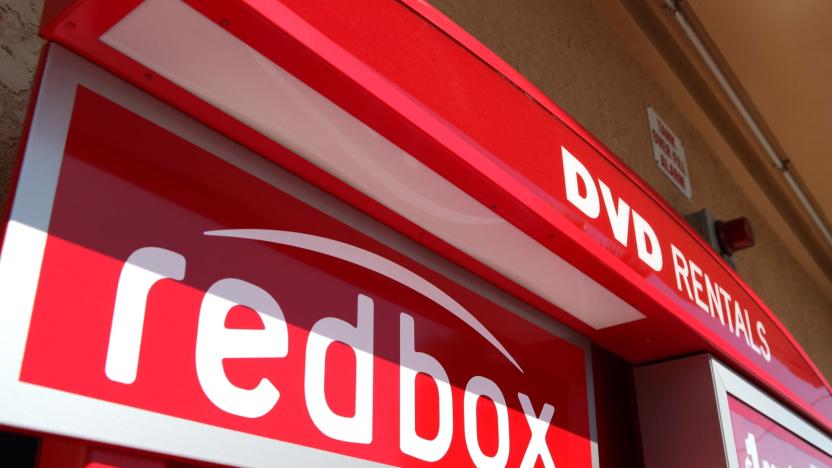
Redbox says Disney lawsuit is a baseless attempt to stamp out rivals
Last month, Disney filed a lawsuit against Redbox claiming that the rental company was violating Disney's copyrights. Redbox buys the Disney discs it rents at retail and when those discs come with download codes for digital copies, Redbox sells them to its customers. But Disney says that's against its terms of sale and requested an injunction, any profits Redbox made from those sales and $150,000 per copyright infringement. Redbox has now clapped back, Variety reports, filing an opposition to Disney's complaint and injunction request.

Spotify faces $1.6 billion lawsuit over song licensing
Spotify is no stranger to facing lawsuits accusing it of offering unlicensed songs, but the latest could prove to be very costly. Hollywood Reporter has learned that Wixen Music Publishing, which manages the song composition rights for artists ranging from Neil Young to Zach de la Rocha, has sued Spotify for copyright damages of at least $1.6 billion. Wixen claims that the streaming service is using tens of thousands of songs without proper licenses and the compensation to match. The plaintiff had already objected to proposed $43 million settlement in another case in May, so this wasn't coming entirely out of the blue.

YouTube took down FCC's 'Harlem Shake' video for 7 hours
Remember when "Harlem Shake" musician Baauer said he'd take down FCC chairman Ajit Pai's video marking (and really, trivializing) the death of net neutrality? He meant it... although his effort didn't last long. The Verge notes that Baauer's label Mad Decent successfully removed the video from Daily Caller's YouTube channel with a copyright notice for a whopping 7 hours -- not much more than a momentary blip. The brief success is highlighting the concerns about the "shoot first, ask questions later" approach to copyright takedowns at sites like YouTube.

Disney sues Redbox for reselling DVD download codes
Disney isn't too happy with Redbox at the moment. The short-term movie rental service has been selling the download codes that come with the Disney discs it buys and subsequently lends out to customers. The Wall Street Journal reports that unlike other studios, Redbox doesn't have a distribution deal in place with Disney and as a result, it has to buy discs at retail. Then, it sells the download slips to customers at its kiosks for between $7.99 and $14.99.

CBS is suing someone for posting a 'Gunsmoke' screenshot online
CBS is suing a photographer for copyright infringement as a means of avoiding paying a copyright infringement claim the photographer filed against the TV network. Yes, you read that correctly. Jon Tannen posted a screenshot of the old show Gunsmoke to one of his social media accounts, according to Torrent Freak and when CBS caught wind, it filed a $150,000 lawsuit (PDF) citing:

US libraries will continue to preserve old games
Libraries and museums will most likely have more time to preserve old games before they disappear completely. The US Copyright Office has announced that it plans to recommend the renewal of a DMCA exemption giving museums and libraries the right to preserve old games, so long as they require sever support that's no longer working. They can even hack consoles to keep those games running if needed. This exemption has been in place since 2015, but it needs to be renewed every three years.
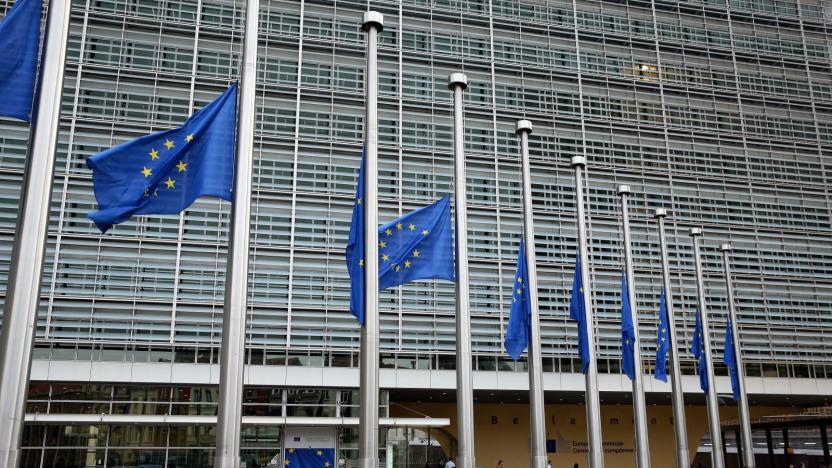
Digital rights groups speak out against EU plan to scan online content
For the past few years, the European Union has been developing reforms that would turn Europe into a Digital Single Market. Under such a structure, anyone in Europe would be able to buy goods and services online from any of the EU member states, not just where they currently happen to be, and services like Netflix would be the same in each country, though that piece would be quite a bit harder to implement. However, there's another part of this conversation that has drawn a fair amount of backlash and this week led major rights groups to pen an opposition letter to the EU.

Pepe the Frog creator battles the 'alt-right' through copyright law
Pepe the Frog creator Matt Furie has long been unhappy with how the "alt-right" hijacked his friendly amphibian for hateful memes, going so far as to declare their uses "illegal" and to kill off the character in a symbolic gesture. And now, he's fulfilling that promise to fight back. Furie has sent cease-and-desist notices to multiple "alt-right" personalities (including racist Richard Spencer, conspiracy theorist Mike Cernovich and Reddit's r/the_Donald community), and he's issuing Digital Millennium Copyright Act takedown requests to pull infringing content from sites like Amazon, Google, Reddit and Twitter.

Monkey selfie copyright battle ends with a settlement
The battle over who owns the rights to a monkey's selfies has raged for years, but it's coming to a quiet end. Camera owner David Slater, PETA and Blurb have reached a settlement in the case before a federal appeals court could rule whether or not Slater or PETA (on behalf of the monkey, a crested macaque named Naruto) owned the photos. The truce doesn't appear to alter Slater's original court victory, but it will have him donating 25 percent of future revenue from the selfies to charities that protect the habitats of Naruto and his species.
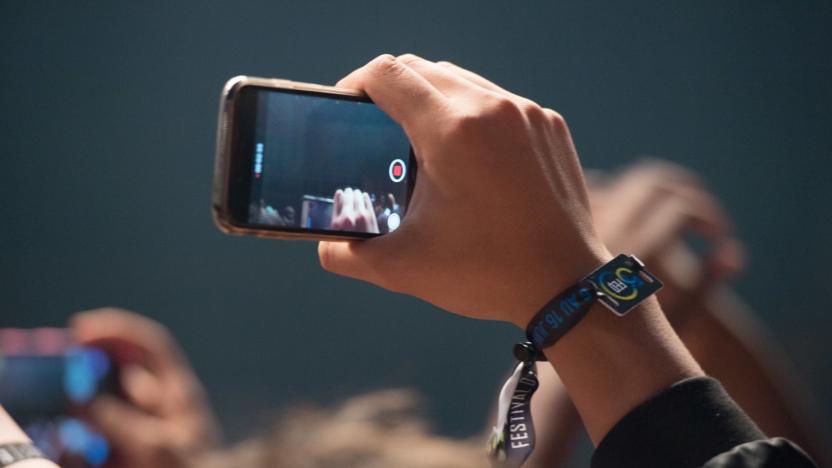
Facebook offers to pay labels for music in homemade videos
You've probably seen more than one homemade Facebook video that uses a popular song to spice up an otherwise plain clip. How many graduation videos have Green Day's "Good Riddance (Time of Your Life)" blaring in the background? That soundtrack isn't legal, however, and Facebook reportedly wants to fix this. Bloomberg sources claim that the social network is offering labels and publishers "hundreds of millions of dollars" to clear songs for use in video uploads. You wouldn't have to worry about a copyright takedown ruining a precious moment, in other words.

YouTube clarifies how much cash its creators can make
A lot of creators rely on YouTube to make a living, but despite recent efforts to improve, the Google-owned site still takes videos down for no good reason. On top of that, mismatching ads to offensive videos recently spawned an "adpocalypse" that deprived legitimate creators of revenue. In a blog post, YouTube now says it will unveil new icons to let you know to what extent your video is being monetized. It'll also give you a new way to appeal directly in the Video Manager for copyright and community guideline problems.
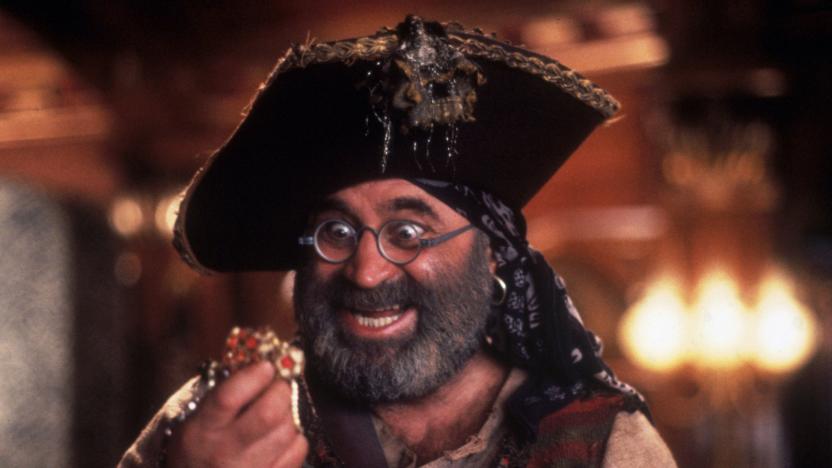
Kodi boxes 'threaten to undermine' the UK's anti-piracy efforts
Media centre software Kodi is once again taking flak for its role in facilitating digital piracy today. An announcement from the UK's Intellectual Property Office (IPO) has praised "innovative" services like Netflix and Spotify for keeping Brits on the straight and narrow, but notes that the scale of online piracy remains "stable" -- which is just a positive way of saying no gains have been made in tackling infringement over the past 12 months, following several years of decline. While not mentioning Kodi specifically (which isn't unusual), the IPO states that "illicitly adapted set-top boxes" are partly to blame for this, and "threaten to undermine recent progress."

UK copyright body throws idle threats at Kodi box owners
Audio-visual enthusiasts know and recognise that Kodi is the swiss-army knife of media centres. But for lots of people around the world, the software is synonymous with movie and TV show piracy. "Fully-loaded" Kodi boxes have made the open-source platform a huge target for copyright authorities and rights holders, who are now using the courts to punish people who sell ready-made illegal streaming solutions. The end user has typically escaped punishment, but the Federation Against Copyright Theft (FACT) is now warning UK owners that they too could see the long arm of the law tap them on the shoulder.

Copyright troll lawyer is finally disbarred for fraud
While it is illegal to download copyrighted files from file-sharing sites, it is also against the law to extort downloaders. John L. Steele, a Chicago lawyer who pled guilty to perjury, fraud and money laundering resulting from alleged "honeypot" schemes, has just been disbarred by an Illinois court. Both Steele and his law partner, Paul Hasmeier, were indicted last March for uploading porn videos that they acquired through sham companies in the West Indies and then suing whomever downloaded them, resulting in a staggering $6 million in settlement fees. That's quite a honeypot.

China says Apple isn't cloning a local phone maker
Did it seem ridiculous to you that Beijing officials ordered a ban on the iPhone 6 and 6 Plus over a dubious design patent claim? You're not the only one. A court has reversed the ban (which was suspended during a dispute process) and declared that Apple isn't violating the patents of Shenzhen Baili Marketing Services, which insisted that the iPhone 6 riffed on the look of its 100c smartphone. Regulators issued the ban without real proof of wrongdoing, according to the ruling, and the iPhone has traits that "completely change the effect" of its design versus its (frankly very generic-looking) rival. Customers haven't had a problem telling the difference between the iPhone and 100c, the court says.

Nintendo wins a key case against a 3DS modchip seller
Nintendo is no stranger to cracking down on companies that sell tools enabling pirated games on its consoles. However, its latest victory might be more important than most. The company has won a copyright case in Canada that accused Go Cyber Shopping (GCS) and its founder, Jeramie King, of illegally selling 3DS flashcarts, modchips and other piracy-oriented tools. While Nintendo would likely be happy enough with that triumph, it notes that this is the first case "of its kind" to test the Canadian Copyright Act's anti-circumvention measures -- think of it as a rough parallel to aspects of the Digital Millennium Copyright Act in the US.

Google and Microsoft agree to demote pirate search results
The UK government has drawn up a 'Voluntary Code of Practice' designed to demote search results for copyright-infringing websites. The new guidelines, which come into effect immediately, have been signed by Google, Bing, the Motion Picture Association and the British Phonographic Industry (BPI). They formalise and "accelerate" the process by which a rights holder can flag what it perceives to be a site containing illegal content. If the request is upheld, the link will be removed from "the first page of search results," according to the UK's Intellectual Property Office.
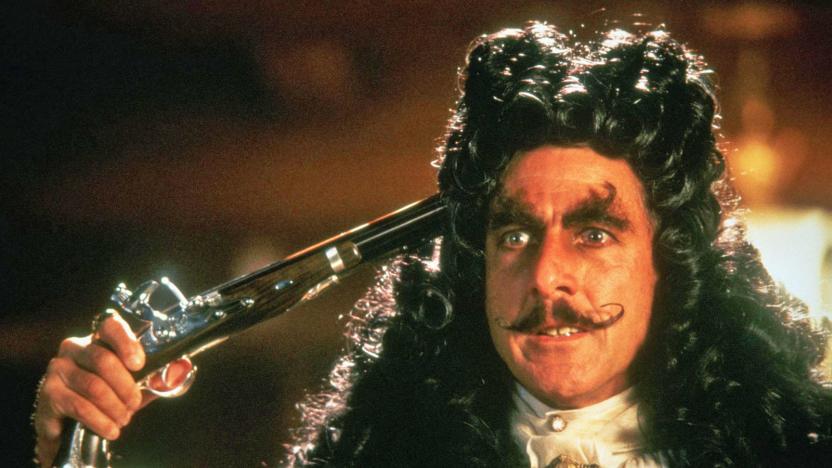
Is the UK's new piracy email alert program dead on arrival?
All of the UK's major internet service providers have just embarked on a new project aimed at curbing digital piracy. As part of a bigger campaign to promote legal sources of media, spearheaded by copyright holders and the UK government, ISPs have signed up to the Voluntary Copyright Alert Programme. Under this, providers have agreed to send warning emails to subscribers when their IP address has been implicated in illegal file-sharing. Rather than being threatening, these emails are intended to be educational, informing people of what's happening on their connection and pointing them towards all the legal ways they can watch the latest DVD releases. There's just one problem: It doesn't work.

US internet providers stop sending piracy warnings
Remember the media industry's vaunted Copyright Alert System? It was supposed to spook pirates by having their internet providers send violation notices, with the threat of penalties like throttling. However, it hasn't exactly panned out. ISPs and media groups have dropped the alert system with an admission that it isn't up to the job. While the program was supposedly successful in "educating" the public on legal music and video options, the MPAA states that it just couldn't handle the "hard-core repeat infringer problem" -- there wasn't much to deter bootleggers.









